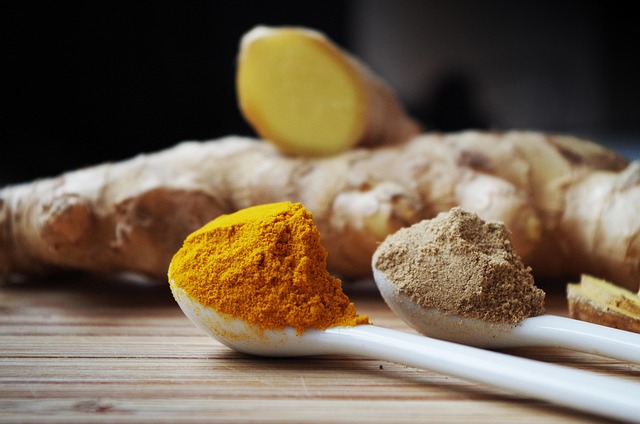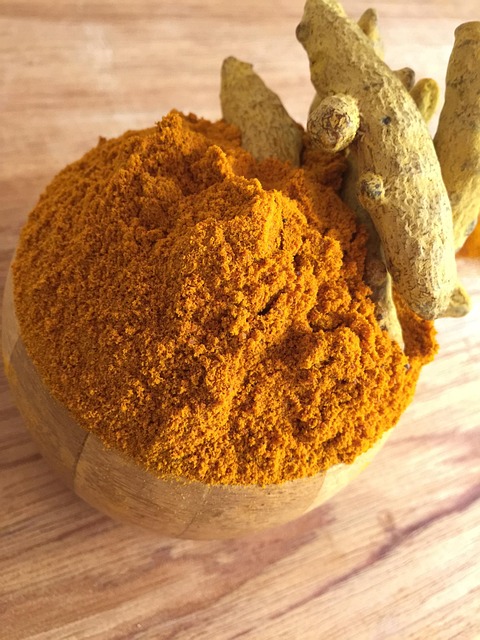💡 Last updated on July 21, 2025
When you’re pregnant, even the smallest choices, like adding a pinch of turmeric to your dinner, can suddenly feel like big decisions. If you’re wondering, “Is turmeric safe during pregnancy?” you’re not alone. Let’s break it down, mama-style: honest, evidence-based, and easy to digest.

Can I Have Turmeric While Pregnant?
Yes, turmeric is safe during pregnancy, but only in culinary amounts. That means the amount you use to season your food is generally considered safe and may even offer some health benefits. But here’s the key: Avoid turmeric supplements and high doses of curcumin during pregnancy.
Turmeric in food = ✅ Safe in moderation
Turmeric in supplements = ❌ Not recommended while pregnant
As a mom writing from experience, I rolled turmeric into soups and curries during my pregnancies, and I felt great. I never touched supplements, because it just didn’t feel necessary. When I felt heartburn or mild swelling, I’d sip a turmeric latte (just a pinch of powder in warm milk). No complications, and that gentle ritual felt comforting.
Still, I always checked with my OB before trying any supplement. Personal experience is helpful, but it doesn’t replace medical guidance.
What Is Turmeric?

Turmeric is a bright yellow spice made from the root of the Curcuma longa plant. It is a part of the ginger family. Its main active compound is curcumin, which gives turmeric its distinctive color and contributes to its powerful antioxidant and anti-inflammatory properties. You’ll often see it in curry mixes or golden milk, and it’s been used in traditional Indian and Chinese medicine for a really long time.
RELATED: Is Ginger Safe in Pregnancy? Benefits, Dosage & Tips for Morning Sickness Relief
Turmeric Spice vs. Turmeric Supplements in Pregnancy
Not all turmeric products are created equal, and this distinction matters when you’re expecting. Cooking with turmeric is generally safe and might even offer mild benefits, but turmeric supplements are a different story.
✅ Safe: Turmeric in Cooking
- Found in small amounts in dishes like curry, soups, and golden lattes
- Contains low levels of curcumin
- May support digestion and reduce inflammation
❌ Avoid: Turmeric Supplements
- Contain high doses of curcumin
- Not tested for safety in pregnant women
- Linked to potential reproductive issues in animal studies
Animal studies suggest that high doses of curcumin may affect fetal development. In one study, pregnant mice given curcumin had lower fetal weights. In another rodent research study, high-dose curcumin was linked to reduced embryo implantation and survival. It seems like these effects come from how curcumin affects hormone signaling and how the uterus works. While these findings don’t directly translate to humans, they raise valid concerns about using turmeric supplements during pregnancy (source).
Can Turmeric Cause Miscarriage?
There’s no solid proof that turmeric causes miscarriage in humans. However, some health professionals caution that large amounts of curcumin might stimulate uterine contractions or act like estrogen in the body. This could, in theory, increase the risk of early labor or miscarriage—but again, there’s no clinical data in humans to confirm this (source).
Better safe than sorry. Avoid high-dose curcumin (like supplements) and stick to turmeric in food.
Potential Benefits of Turmeric in Pregnancy
If used in moderation as part of a healthy, balanced diet, turmeric might offer some mild perks during pregnancy:
- Natural anti-inflammatory: May help with joint or back pain
- Digestive support: Could ease mild bloating and indigestion
- Antioxidants: Supports your immune system
- Oral health: Some early studies suggest turmeric can reduce plaque and inflammation in the gums (important during pregnancy!)
Just keep in mind that these potential benefits come mostly from studies in non-pregnant adults and animals, not expectant mamas. For example, some animal studies suggest that curcumin may reduce inflammation linked to preeclampsia and help improve fetal growth in undernourished pregnancies by supporting placental health (PubMed).
While these findings are promising, they haven’t been tested in pregnant humans. So while it’s totally fine to enjoy turmeric in food, don’t rely on it as a treatment, and always talk to your OB-GYN before using it for health purposes during pregnancy.
FAQs About Turmeric in Pregnancy
Final Thoughts: Turmeric and Pregnancy
You can safely enjoy turmeric as a spice during pregnancy, but skip the supplements. As with so many things in pregnancy, moderation is everything. A sprinkle here and there in your meals? Totally fine. Using it to treat a health condition? Talk to your doctor first.
When in doubt, always check with your healthcare provider—every pregnancy is different!
Disclaimer: This post is for informational purposes only and does not replace medical advice. Always consult your doctor or OB-GYN before making any changes to your diet or supplement routine while pregnant.
Want more pregnancy-safe food tips? Check out our guides on:
